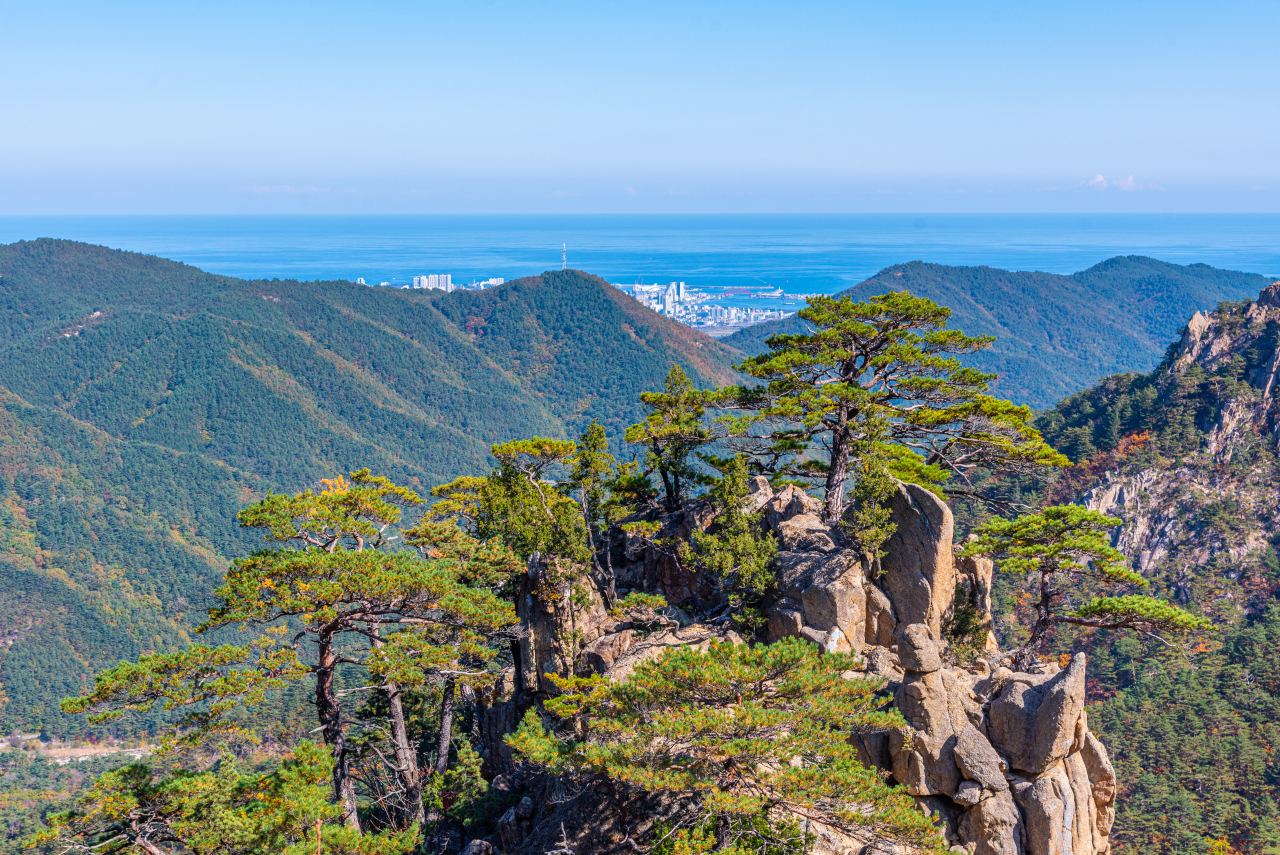40-year-old Mt.Seorak cable car project gets conditional green light
By Park Jun-heePublished : Feb. 27, 2023 - 14:59

A cable car project on Mount Seorak first proposed in the early 1980s which has been at the center of controversy over its environmental impact received a partial nod from the Ministry of Environment on Monday.
The Environment Ministry's grant, though conditional, lifts the biggest administrative hurdle for the project pursued by a municipality in Gangwon Province for decades. The project budget of 50 billion won ($38 million) will undergo a regional finance review by the Ministry of the Interior and Safety, according to reports quoting officials. The project is expected to break ground next year and will be completed in 2026.
The cable car construction was also part of balanced development policy goals picked by President Yoon Suk Yeol’s transition team and a pledge drive by Gangwon Province Governor Kim Jin-tae.
The Wonju Regional Environmental Office under the Environment Ministry said that it granted the project conditional approval after assessing an environmental impact report submitted by the coastal county of Yangyang in December last year. The report stated that the “project carries measures to minimize detrimental environmental effects.”
Under the scheme, the county plans to build a 3.5-kilometer-long cable car between the Seoraksan National Park’s Osaek area and near the mountain’s peak. The project is also pinning high hopes to boost tourism and improve service for visitors by offering more diverse travel routes, especially to disabled and older adults.
Mount Seorak is the third-highest mountain in Korea, with the mountain’s major peak Daecheongbong at nearly 1,708 meters above sea level. Currently, it only has a scaled-down sized cable car that connects the entrance of Mount Seorak National Park to the 700-meter-high summit of Gwongeumseong in Sokcho, another eastern coast town in Gangwon Province.
It is also located on a site that was designated a natural reserve by the government in 1965 and a biosphere reserve by UNESCO in 1982.
Controversies had escalated for years over possible detrimental effects on the ecosystem at the country’s best-preserved national park.
While the province pushed the project for tourism and economic revival and was welcomed by Yangyang residents, preservationists raised concerns about the significant damage it could have on the ecosystem and animals living in the area such as mountain goats. A civic group which has been opposing the project lashed out at the ministry's approval on Monday, calling the Environment Ministry an "unscrupulous group."
In late 2015, an Environment Ministry committee granted partial approval to the project in the Osaek area. In November 2016, the Wonju Regional Environmental Office asked Yangyang county to complement its environmental impact statement, especially concerning protecting endangered wildlife. The revised report was submitted in May 2019, but the ministry disapproved of the project, saying that it was “unfavorable from an environmental point of view.”








![[Graphic News] More Koreans say they plan long-distance trips this year](http://res.heraldm.com/phpwas/restmb_idxmake.php?idx=644&simg=/content/image/2024/04/17/20240417050828_0.gif&u=)
![[KH Explains] Hyundai's full hybrid edge to pay off amid slow transition to pure EVs](http://res.heraldm.com/phpwas/restmb_idxmake.php?idx=644&simg=/content/image/2024/04/18/20240418050645_0.jpg&u=20240419100350)








![[KH Explains] Hyundai's full hybrid edge to pay off amid slow transition to pure EVs](http://res.heraldm.com/phpwas/restmb_idxmake.php?idx=652&simg=/content/image/2024/04/18/20240418050645_0.jpg&u=20240419100350)

![[Today’s K-pop] Illit drops debut single remix](http://res.heraldm.com/phpwas/restmb_idxmake.php?idx=642&simg=/content/image/2024/04/19/20240419050612_0.jpg&u=)